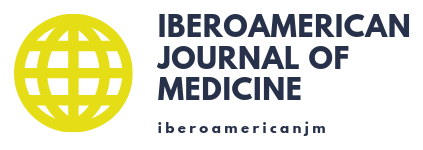How to Apply Problem-Based Learning in Medical Education? A Critical Review
Said Said Elshama
Abstract
Problem-based learning (PBL) is a cornerstone of modern medical education. Principles of PBL are the construction of knowledge, prior knowledge activation, organization of knowledge, elaboration of knowledge, stepwise transfer across contexts and cooperation with other learners. It provides the ability to identify the knowledge, generate and analyze hypotheses that lead to the differential diagnosis of the case according to the complaint of the patient by using history taking, physical exam, and investigations. Application of any innovation such as PBL faces many challenges and obstacles that are related to the students, tutors, learning environment and other stakeholders. We can overcome these obstacles by more training sessions for tutors and students. In addition, the construction of PBL curriculum should be based on a community-oriented approach because it depends on the priorization of common health problems in the surrounding community.
Keywords
References
1. Kim S, Phillips WR, Pinsky L, Brock D, Phillips K, Keary JA. Conceptual framework for developing teaching cases: A review and synthesis of the literature across disciplines. Med Educ. 2006;40:867-876.doi: 10.1111/j.1365-2929.2006.02544.x.
2. Roberts D, Ousey K. Problem based learning: Developing the triggers. Experiences from a first wave site. Nurse Educ Pract. 2003;3(1):1-5. doi: 10.1016/S1471-5953(03)00073-8.
3. Wood DF. Problem based learning. BMJ. 2003;326:328-30. doi: 10.1136/bmj.326.7384.328.
4. McManus IC, Elder AT, de Champlain A, Dacre JE, Mollon J, Chis L. Graduates of different UK medical schools show substantial differences in performance on MRCP (UK) part 1, part 2 and PACES examinations. BMC Med. 2008; 6: 5 doi: 10.1186/1741-7015-6-5.
5. Pawson E, Fournier E, Haight M, Muniz O, Trafford J, Vajoczki S. Problem-based learning in geography: Towards a critical assessment of its purposes, benefits and risks. Journal of Geography in Higher Education. 2006; 30(1): 103-16. doi: 10.1080/03098260500499709.
6. Dochy F, Segers M, van den Bossche P, Gijbels D. Effects of problem-based learning: a meta-analysis. Learn. Instruct, 2003; 13(1): 533–568.
7. Farrow R, Norman GR. The effectiveness of PBL: the debate continues. Is meta-analysis helpful? Med Educ. 2003;37(12):1131-2. doi: 10.1046/j.1365-2923.2003.01725.x.
8. Davis DA, Mazmanian PE, Fordis M, Van Harrison R, Thorpe KE, Perrier L. Accuracy of physician self-assessment compared with observed measures of competence. A systematic review.JAMA.2006;296(1):1094-102. doi: 10.1001/jama.296.9.1094.
9. Dolmans D. The effectiveness of PBL: the debate continues. Some concerns about the BEME movement. Med Educ. 2003;37(12):1129-30 doi: 10.1046/j.1365-2923.2003.01724.x..
10. Koh GC-H, Khoo HE, Wong ML, Koh D. The effects of problem-based learning during medical school on physician competency: a systematic review. CMAJ. 2008;178(1):34-41. doi: 10.1503/cmaj.070565.
11. Worley P. Relationships: A New Way to Analyze Community based Medical Education. (Part One). Educ Health (Abingdon). 2002;15(2):117-28. doi: 10.1080/13576280210133062.
12. Hung W. The 3C3R model: A conceptual framework for designing problems in PBL. Interdiscipl J Prob Based Learn. 2006;1(1):55-77. doi https://doi.org/10.7771/1541-5015.1006:
13. Worley P. Integrity: The Key to Quality in Community-based Medical Education. (Part Two). Educ Health (Abingdon). 2002;15(2):129-38. doi: 10.1080/13576280210133053.
14. Neufeld V, Pickering, R, Simpson J. Priority Health Problems in the Education of Health Professionals. Network Publications, Maastricht, 1997; 81-88.
15. Harden RM. Outcome-based education: the future is today. Med Teach. 2007;29(7):625-9. doi: 10.1080/01421590701729930.
16. Hmelo-Silver CE. Problem-Based Learning: What and How Do Students Learn? Educ Psychol Rev. 2004;16(3):235-66. doi: 10.1023/B:EDPR.0000034022.16470.f3
17. Colliver JA. Effectiveness of problem-based learning curricula: research and theory. Acad Med. 2000;75(3):259-66. doi: 10.1097/00001888-200003000-00017.
18. Wirkala C, Kuhn D. Problem-Based Learning in K–12 Education: Is it Effective and How Does it Achieve its Effects? Am. Educ. Res. J. 2011;48(5):1157-86. doi: https://doi.org/10.3102/0002831211419491.
19. Norman GR, Schmidt HG. Effectiveness of problem-based learning curricula: theory, practice and paper darts. Med Educ. 2000;34(9):721-8. doi: 10.1046/j.1365-2923.2000.00749.x.
20. Azer SA, Petersonr, Guerrero PS, Eedgren G. Twelve tips for constructing problem-based learning cases. Med Teach. 2012;34(5):361-7. doi: 10.3109/0142159X.2011.613500.
21. Elshama SS. How to Use Simulation in Medical Education. 1st ed. Scholars' Press Germany, 2016.
Submitted date:
12/13/2019
Reviewed date:
12/19/2019
Accepted date:
12/20/2019
Publication date:
12/19/2019

